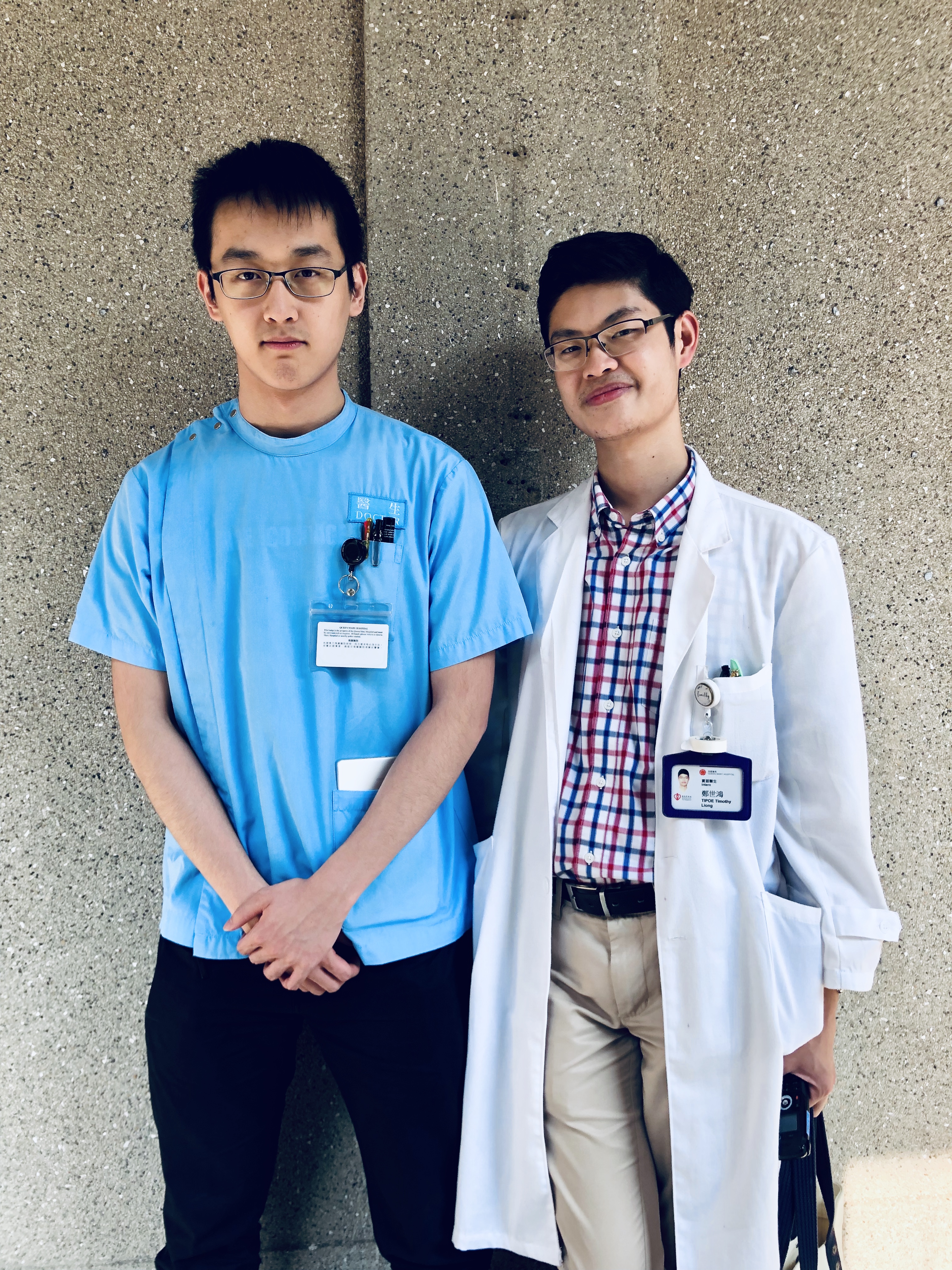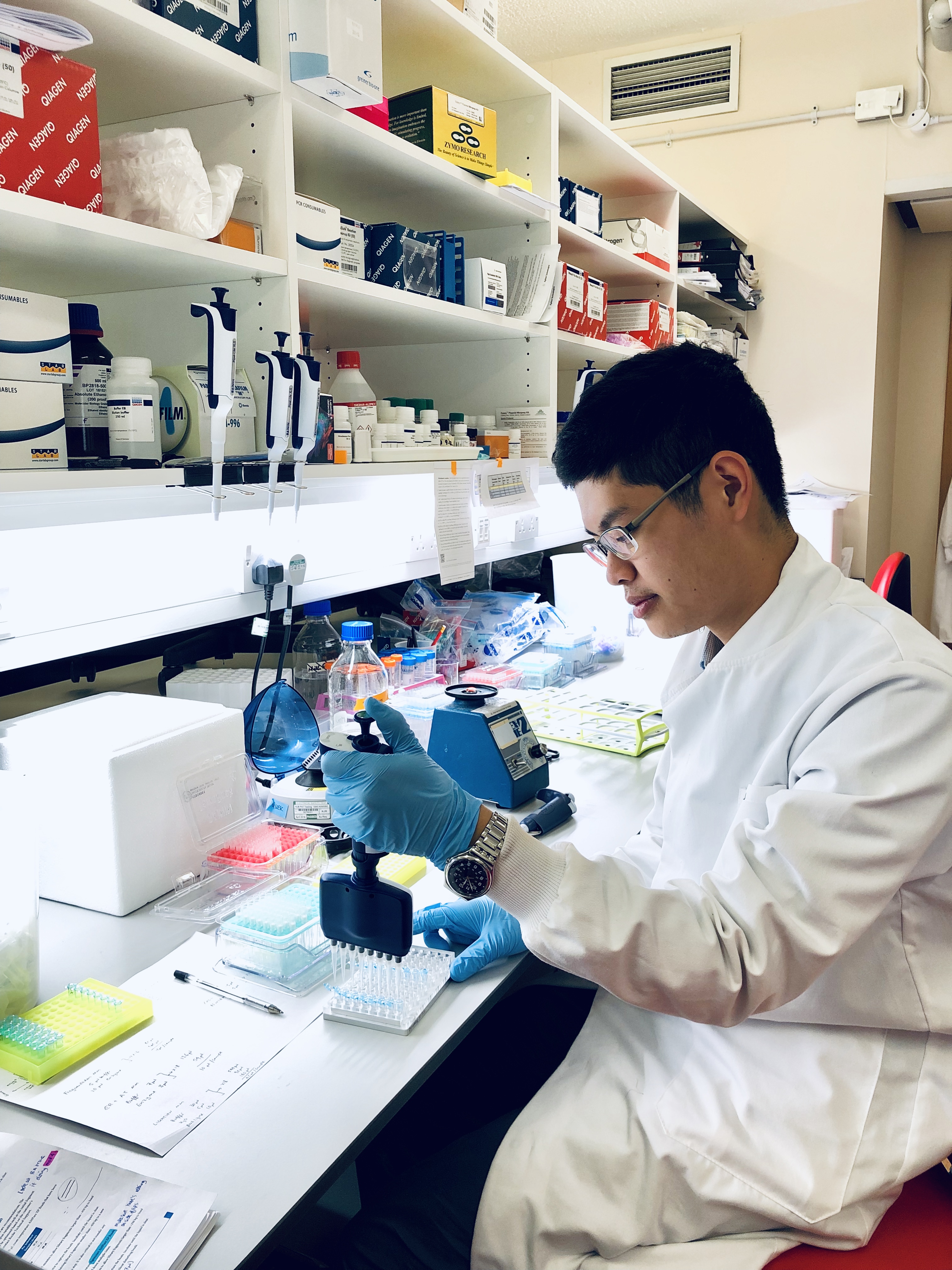Reflections from a Medical Intern and Future Clinical Scientist
2020年8月14日

鄭世鴻
MBChB , 2019 Graduate
Working as a medical intern at the Prince of Wales Hospital
For many people, being a doctor means that you are part of a respectable and admirable profession. To my fellow Morningside students, the joy of graduating from medical school is something I’m sure you all look forward to with great excitement.
I entered my internship year with a fiery passion to save lives and help people. After 365 days of brain-crunching diagnoses, countless needle pricks (both successful and unsuccessful) and working in the “dirty team”, I can now confidently say that I have grown into a more mature and (hopefully) experienced doctor.
For those of you that are curious, “dirty team” work essentially involves working as a frontline doctor in the isolation wards to treat suspected and confirmed COVID-19 cases. Through this blog post, I hope to provide a glimpse of my experiences by listing attributes which I believe are essential for any effective workforce.
- Being realistic. Let’s face it: each of us only have 24 hours per day, and we need to spend it as wisely as possible. As a “dirty team” worker, this time pressure is compounded by the need to be completely aseptic in your work practices (such as wearing full personal protective equipment (PPE) when attending to patients, handling blood samples aseptically, and proper and frequent hand sanitisation). After all, the last thing the hospital wants is for their own staff to be infected by COVID, which would impede our own efforts to fight the virus in the first place.
- Having good teamwork. For me, working in the “dirty team” was definitely more psychologically taxing than it was physically. Some days I would wake up in my dormitory fearing that I had contracted COVID, and on other days I would brood over the alarming COVID case numbers being reported globally. However, having good team members in the medical wards made it much more bearable. Apart from performing our medical duties, we would sometimes help do other tasks such as taking the temperature of patients and bringing them their food (which helped our hospital reduce our usage of hospital gowns). In the Prince of Wales Hospital where I worked, our seniors were very supportive and did not hesitate to help us by giving us tips on handling patients and coaching us on proper management protocols.
- Showing empathy. In the midst of such profound adversity, what really made a difference to patients in my opinion was the way that we treated them. Yes, there is still a lot we don’t know about COVID, but we should still support our patients to the best of our ability. During my time, I realised even the simple act of saying “don’t worry, you will be okay” or “we will inform you of the result as soon as we can” can really comfort patients and alleviate their concerns.
Adversity and difficult times will always be there, whether it be COVID-19, an upcoming exam that counts for 40% of your final grade, or even other financial or relationship problems. Understandably, many things are beyond our control, and I think COVID-19 is a very good real-life example of that. However, all we can do is put our best foot forward and not become overwhelmed by uncertainty. So treasure your time at university and at Morningside; if anything, the skills and knowledge learned during your time there will help you face your future “giants”. So go out, be brave and make Morningside proud! And remember to wear a mask and perform hand sanitising frequently, too.

Picture with my friend Kevin Lui on our last day working at Queen Mary Hospital
My Future Plans
Rather than going straight to residency, I will be commencing a DPhil in Clinical Medicine at the University of Oxford this October, with funding from the Esther Yewpick Lee Millennium Scholarship. I will be doing research on HIV therapy under the supervision of Prof. John Frater. After completing my DPhil, I plan to return to the Prince of Wales Hospital to become a clinical researcher. I could not be more grateful to Morningside, and my mentors at CUHK and Oxford for providing their support throughout this journey. Until we meet again!

Laboratory work at the Weatherall Institute
